Custom decal printing has changed diecast customization. Many model fans want to learn this technique1. It shows how powerful custom decals are in model car detailing.
Custom decals can make your models look amazing. This skill is useful for both expert collectors and new hobbyists.
Custom decals are a cheap way to make your models special. Decal paper costs less than other customizing materials1. You can find paper for inkjet and laser printers.
You’ll need a few things to start. Clear acrylic spray seals your decal sheets. Micro-Set and Micro-Sol help apply decals1.
These products cost about $5 each at scale-model shops. Choose your decal paper based on your model’s color. White paper works best for dark models.
Clear paper is great for light or white models1. This choice helps your decals look their best.
Key Takeaways
- Custom decals are in high demand for diecast customization
- Decal paper is available for both inkjet and laser printers
- Clear acrylic spray is crucial for sealing custom decals
- Micro-Set and Micro-Sol aid in decal application
- Choose white decal paper for dark models, clear for light ones
- Custom decals are a cost-effective way to personalize models
Essential Materials and Equipment for Custom Decal Creation
Custom decals for diecast models need specific tools and materials. Quality equipment ensures great results in model car decal designs. Let’s look at what you’ll need to start.
Computer Hardware and Software Requirements
You’ll need a computer with graphic design software for pro-looking scale model decals. Popular choices include CorelDRAW, Photoshop, or Adobe Illustrator.
For printing, think about a specialized printer like the OKI white toner printer. It offers excellent results for custom decals2.
Types of Decal Paper and Their Applications
There are three main types of decal paper: clear, opaque, and perforated. Each type serves a specific purpose in creating custom decals2.
Clear decal paper works well for light-colored models. Opaque is ideal for darker surfaces. Perforated paper is perfect for creating window graphics on diecast cars.
Essential Tools and Supplies
To apply your custom decals effectively, you’ll need several tools:
- Craft knife for precise cutting
- Sanding tools to prepare surfaces
- Tweezers and pliers for handling small parts
- Drill and bits for creating holes or repositioning parts
- High-quality model-grade paints and primers
- Decal setting solutions for seamless adhesion3
These tools are crucial for achieving professional results. They help create stunning custom decals for your diecast models.
With the right equipment, your scale model and 3D printed decals will stand out. Your diecast models will look amazing.
| Tool | Purpose |
|---|---|
| Craft Knife | Precision cutting and detailing |
| Sanding Tools | Surface preparation |
| Tweezers and Pliers | Handling small parts |
| Drill and Bits | Creating holes for custom parts |
| Paints and Primers | Achieving vibrant colors |
| Decal Setting Solutions | Ensuring seamless decal adhesion |
How to Make Custom Decals for Diecast
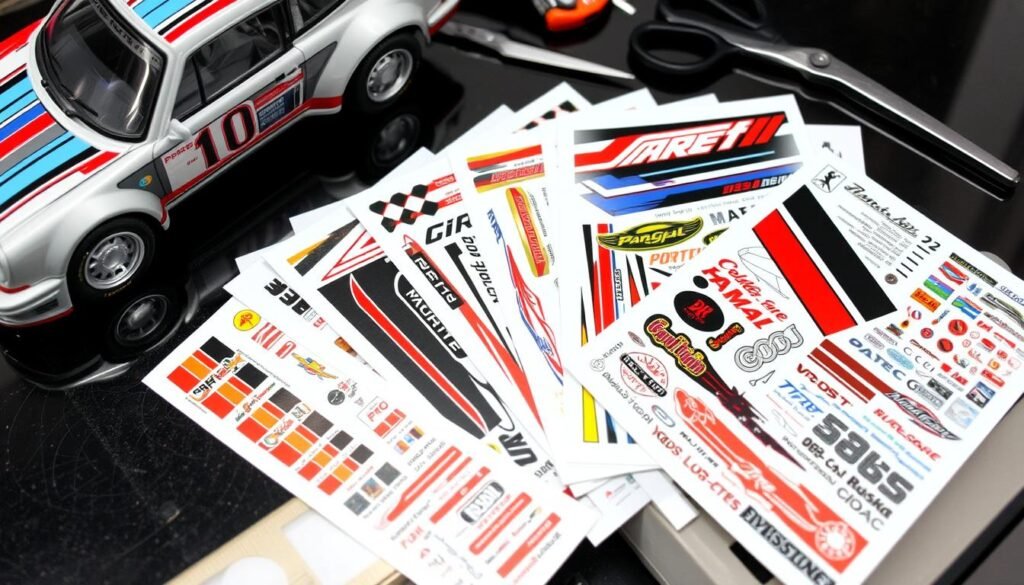
Custom decals bring life to diecast models. This hobby lets enthusiasts create unique miniature vehicles. Let’s explore how to make your own custom decal sheets.
Designing Your Custom Decals
Choose a base color and create or find artwork. Precise measurements ensure a perfect fit on your model. Export your design as a PNG file for transparency.
Online forums offer valuable tips and tricks. Some users share up to 22 posts about decal creation4.
Printing Techniques and Best Practices
Use RIP software and select ‘Underprint’ for white toner printers. Set your printer to 69% for 1/200 scale models. For 1/400 scale, use 35% to get the right size5.
Complex designs may need specialized printers. The iColor 560 offers enhanced color vibrancy and white printing capabilities.
Sealing and Protecting Your Printed Decals
Cut your decals carefully, leaving a small border. Seal them with three spray coats of Humbrol acrylic gloss varnish5. Allow proper drying time before applying waterslide decals.
Make extra decals in case of mishaps during application5. Customizing a diecast car takes time and patience.
Ensure you have a well-lit work area for the best results6. With practice, you’ll create professional-looking custom decals for your models.
Professional Application Techniques and Tips
Custom decals require precision and care. Clean the model’s surface thoroughly for proper adhesion. Apply Micro-Set solution to improve bonding before placing the decal.
Use Micro-Sol on complex surfaces to soften decals. Smooth out air bubbles with a soft cloth or applicator tool. Seal decals with a clear coat for lasting protection.
Airbrush painting elevates diecast customization. It allows for smooth color transitions and fine details. Practice controlling air pressure and paint flow for best results.
Weathering adds realism to your model. Use dry brushing to highlight raised details. For rust effects, apply pigments mixed with matte medium.
Disassembling the diecast car before weathering can create more authentic results.
| Technique | Application | Effect |
|---|---|---|
| Dry Brushing | Edges and raised areas | Worn metal look |
| Washes | Panel lines and recesses | Depth and shadow |
| Pigment Powders | Flat surfaces | Dust and grime |
Choose durable materials for custom decals. Vinyl stickers are scratch-resistant and waterproof, ideal for outdoor use7. Paper stickers are eco-friendly but less durable7.
Quality equipment improves results. The Epson XP-7100 printer offers excellent print quality for £2007. For professional-grade output, consider the Canon PIXMA PRO-100S at £4007.
Allow sufficient drying time before handling your customized model. This step preserves your hard work and ensures lasting results.
Conclusion
Custom decals transform ordinary diecast models into unique art pieces. This personalization trend is growing in popularity. Customized models often command higher prices in the collector’s market8.
Diecast customization requires patience and precision. Acrylic paints are easy to use and dry quickly. Fine-grit sandpaper helps smooth surfaces before painting9.
Airbrushing and detailing showcase diverse skills within the industry8. For best results, work in a clean environment. Allow adequate drying time between steps.
The diecast world appeals to all ages, from beginners to seasoned collectors10. Many high-end models feature working doors, hoods, and wheels. These details add realism and collectability10.
Experiment with different decal types, designs, and application methods. This will help you achieve professional-looking results. With practice, you’ll create stunning, personalized models that stand out.
FAQ
What materials do I need to create custom decals for diecast models?
Which type of decal paper should I use?
What software is recommended for designing custom decals?
How do I prepare my diecast model for decal application?
What’s the best way to apply decals to irregular surfaces?
How can I protect my custom decals after application?
Can I create white decals for dark-colored models?
How do I achieve a weathered look on my custom decals?
What’s the importance of drying time in the decal creation process?
How can I improve my custom decal creation skills?
Source Links
- Hobby Guide: Making Your Own Custom Decal Sheets – https://www.belloflostsouls.net/2022/06/hobby-tutorial-make-your-own-custom-decal-sheets.html
- No title found – https://www.diecastdecals.com.au/BlogUI/Index/what-are-the-characteristics-of-a-diecast-decal
- How To Start Customizing Diecast Car Models – https://livecarmodel.com/blog/how-to-start-customizing-diecast-car-models/?srsltid=AfmBOor0uQ7JHfGE9V-cp8u3eGGYmuRefxfW-H-zIUY_cXviMtBmy8BW
- How to do Decals for Customs? – https://www.diecastaircraftforum.com/custom-made-models/325508-how-do-decals-customs.html
- Creating your own Custom Decals – Model Airliner Magazine – https://modelairliner.com/creating-your-own-custom-decals/
- How to make a 1/24 custom start to finish – https://www.diecastcrazy.com/threads/how-to-make-a-1-24-custom-start-to-finish.88775/
- How to Make Your Own Die Cut Stickers | Sticker it – https://stickerit.co/blogs/tutorials/how-to-make-your-own-die-cut-stickers?srsltid=AfmBOoqIOahABfTbb3-JkqhcATgc21OPLYEEgpMTzXSzs8-xSYRk69ia
- From Hobby to Art: The Fascinating World of Custom Diecast Cars – https://medium.com/@rapidvehicles2023/from-hobby-to-art-the-fascinating-world-of-custom-diecast-cars-1c4bff8f0c11
- How to Customise Die Cast Cars – https://www.model-car-world.co.uk/blog/post/HowtoCustomiseDieCastCars
- Why Diecast Models Make the Perfect Collectables – https://www.hobbyco.com.au/blogs/blog/why-diecast-models-make-the-perfect-collectables?srsltid=AfmBOoqKDVRAtRurzehTsi5XQYeQELyWtZZF_2a3YB2rwu6ayGDF9XFM

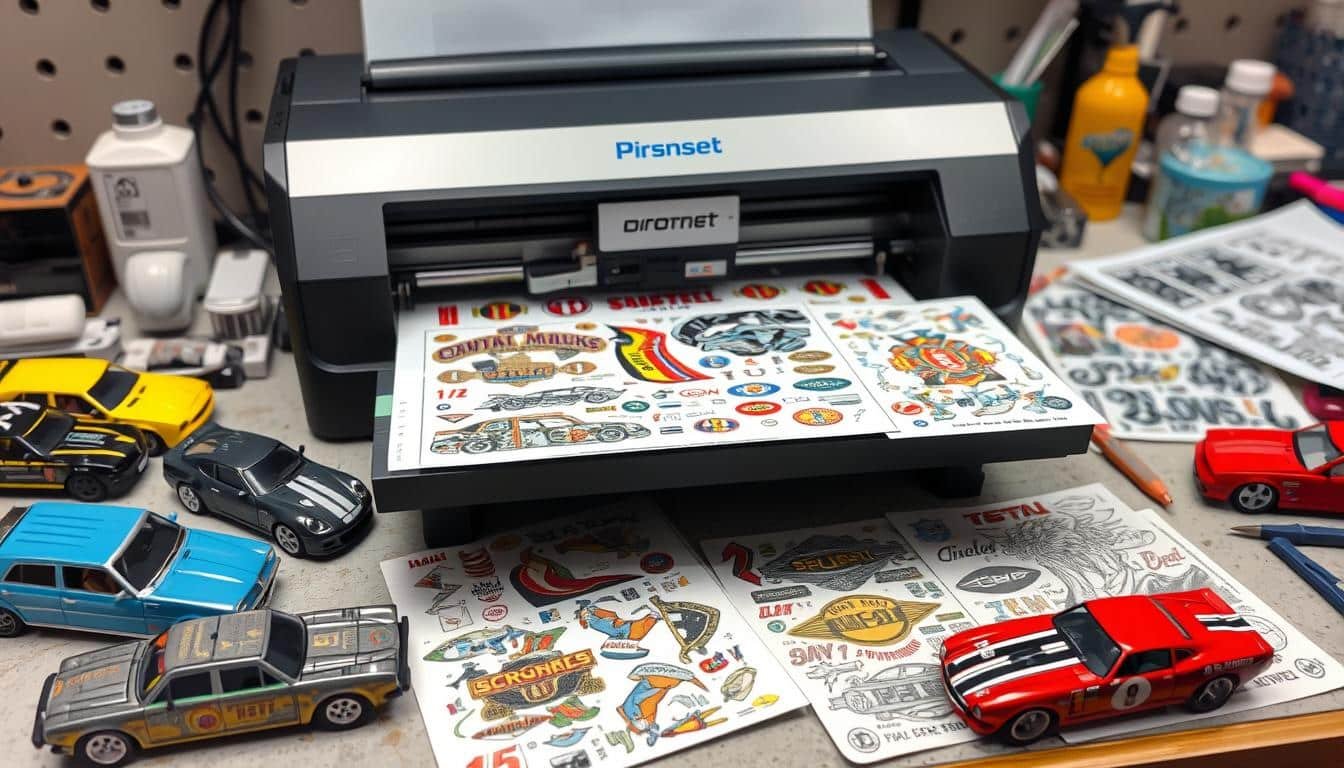

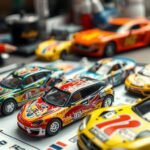
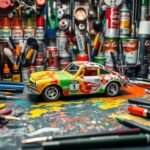

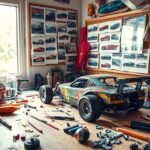
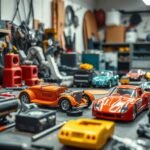
Interesting article! But isnt there a more cost-effective way to create custom decals without investing in high-end computer hardware and software?
Cool guide. But how does decal paper type affect the final look? Has anyone tried different kinds? Share your experiences!